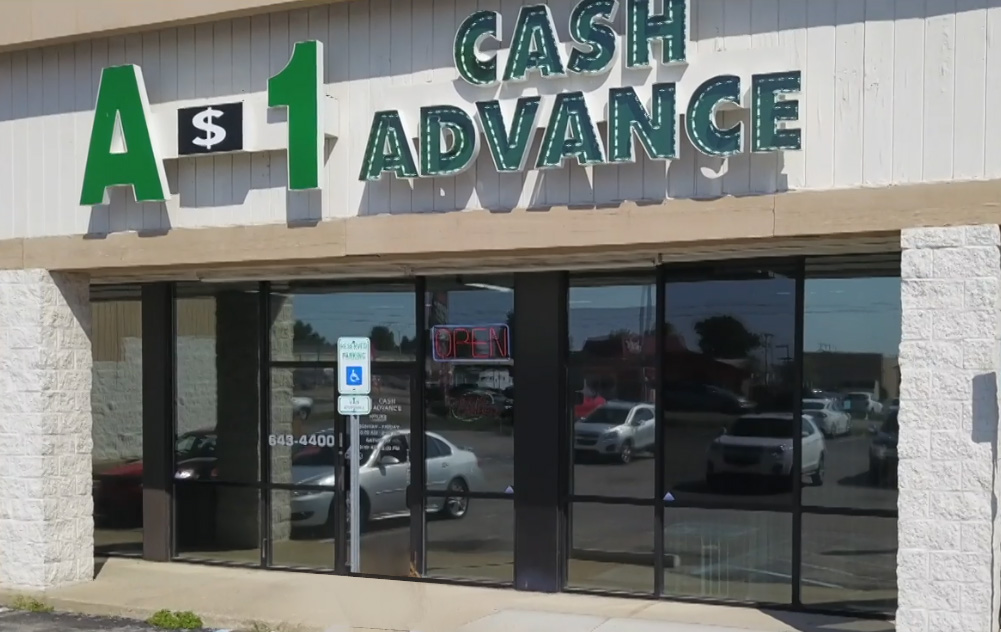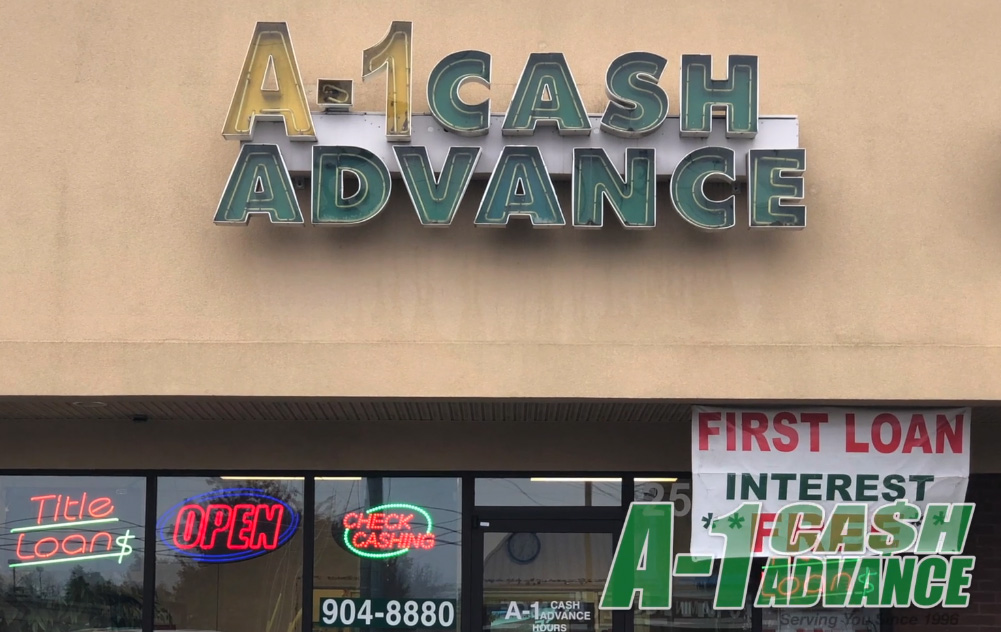BORROWER RIGHTS AND RESPONSIBILITIES
Please take the time to carefully review the information contained in this pamphlet. It is designed to advise you of your rights and responsibilities in connection with obtaining a small loan in Indiana pursuant to Indiana Code 24-4.5-7 et seq. If you have any questions about small loans or want additional information, you may contact the State of Indiana Department of Financial Institutions toll free at (800) 382-4880 or by email at dficomplaints@dfi.IN.gov.
In General: You are responsible for evaluating whether a small loan is right for you. Alternatives may include, among other things, less expensive short-term financing from another financial institution, family or friends, a cash advance on a credit card, an account with overdraft protection, or a loan repayable over several months.
Notice from Lender: The lender is required to provide you with a clear and conspicuous notice advising you that, among other things, a small loan is not intended to meet long-term financial needs and that you should use a small loan only to meet short-term cash needs.
Limitations on Security Interest: The lender cannot require you to provide more than one check or authorization to debit your account as security for any small loan. The check or authorization to debit may not exceed the amount advanced to or on behalf of the borrower plus loan finance charges contracted for and permitted. A small loan may not be secured by personal property of any type other than a check or electronic debit authorization. You are not required to provide your Personal Identification Number (PIN) to the lender.
$715 Maximum/Fourteen Day Minimum Term: A lender may not permit a person to become obligated under more than one loan agreement with the lender at any time. Lenders cannot have loans (either single or in the aggregate) outstanding with you at any one time if the aggregate principal amount/amount financed exceeds $715. A lender cannot make a small loan to a borrower who has two or more small loans outstanding, regardless of the total value of the small loan. By law, the due date of your loan must be at least fourteen days after the date that money is advanced to you.
Loan Amount, Charges, etc.: The lender is prohibited from making a small loan to you that exceeds 20% of your monthly gross income. Finance charges on the first $250 of a small loan are limited to 15% of the principal (i.e. $30 on a $200 advance). Finance charges on a small loan greater than $250 and less than or equal to $400 are limited to 13% of the amount over $250 and less than or equal to $400 (i.e. $44 on a $300 advance). Finance charges on the amount of the small loan greater than $400 and not more than $715 are limited to 10% of the amount over $400 and not more than $715 (i.e. $88.50 on a $715 advance). Other than the specific fees and costs discussed in the section of this pamphlet entitled “Failure to Repay” (see below), no additional amounts may be directly or indirectly charged, contracted for, collected, received, or recovered by the lender. You may receive your loan proceeds in the form of a check from the lender. The lender cannot charge you a fee for cashing its check. Similarly, a check casher affiliated with the lender cannot charge you a fee for cashing the lender’s check.
Written Agreement: The lender must provide you with a contractual agreement, which must be signed by both you and an authorized representative of the lender. The loan agreement is a binding, legal document which requires you to repay the loan. Make sure you read the entire loan agreement carefully before signing and dating it. The lender must provide you with a duplicate original of the loan agreement at the time of your loan transaction.
Right to Cancel: You have the right to cancel your small loan at any time prior to the close of business on the next day the lender is open following the date you receive the loan proceeds by paying the lender the amount advanced to you in cash, certified check, authorized account debit, cashier’s check, money order or, if the lender is equipped to handle such payments, by using a credit or debit card.
Partial Payments: You have the right to make partial payments in any amount on your small loan at any time before the due date without charge. You have the right to receive signed, dated receipts for each payment made showing the amount paid and the balance due on the small loan.
No Renewals: The lender cannot renew, repay, refinance, or consolidate your small loan with the proceeds of another small loan made to you by the lender. On the due date of your loan you may pay the lender in full by cash, or the lender may deposit the personal check they are holding or they may debit your account if you signed a debit authorization.
Consecutive Small Loans: “Consecutive small loan” means a new small loan agreement that the lender enters with the same borrower not later than seven (7) calendar days after a previous small loan made to that borrower is paid in full. At the time you enter the third, fourth, or fifth consecutive loan, the lender is required to offer you an extended payment plan (EPP). You may request an EPP at any time during the term of a third or subsequent consecutive small loan so long as you have not defaulted on the outstanding small loan, provided the period in which you have a right to cancel (see above) has expired. No additional fees may be added to this payment plan. You should review all disclosures and contractual materials presented to you to determine if you want to enter into such an agreement. Once you have entered into an EPP, you will not be able to enter into another small loan transaction with any small loan lender until the EPP is paid in full. A seven-day cooling-off period applies after you have had a total of six loans (an initial loan followed by five consecutive loans) with any one lender.
Failure to Repay: Know when your payment is due and be sure to repay your loan on time and in full. You are responsible for having sufficient funds in your checking account on the due date of your loan so that your check does not bounce if the lender deposits it in its account or authorizes an electronic withdrawal. If you cannot or do not repay the loan, then the lender is permitted to recover from you a charge, not to exceed $25, for each returned check, dishonored check, dishonored electronic funds transfer, etc. This charge may be assessed only one time regardless of how many times a check or authorization to debit your account is dishonored. The lender is prohibited from threatening or beginning criminal proceedings against you if a check you provide to the lender is returned unpaid from your depository institution.
Debt Management and Credit Counseling Services: Debt management companies can provide assistance to consumers who need help reorganizing their debts. In addition, consumer credit counseling services can provide valuable financial education and budgeting advice. They can work with consumers and their creditors to coordinate repayment agreements and to help make their finances more manageable. The use of a credit counseling service will most likely result in charges to be paid by the consumer; therefore, when seeking help from a credit counselor, the consumer should ask for a full disclosure of the total cost, the benefits to be provided, and all other related information. Many organizations offer this service at charges much less than their competitors, so the consumer should always compare costs.
Complaints and Contacting the Department of Financial Institutions: For assistance with any complaints you may have against a small loan lender, please contact the Indiana Department of Financial Institutions toll-free at (800) 382-4880 or by email at dficomplaints@dfi.IN.gov. A copy of the complaint form is available on the Department’s website, www.in.gov/dfi, and may be submitted by mail, email, or fax.
A-1 CASH ADVANCE
8504 E. WASHINGTON ST.
INDIANAPOLIS, IN 46219
PH. (317) 897-2420
FAX (317) 897-2420


